During the racing season, about 1,000 workers at Kentucky’s Churchill Downs groom, exercise, and take care of competitors – hard and potentially dangerous work
Walking among the green-roofed stables of America’s most fabled horse racing track – Louisville’s Churchill Downs in Kentucky – chaplain Joseph Del Rosario greets the men and women washing prized thoroughbreds after their morning workouts with a warm “¿Cómo estás?”
Making his way past piles of hay and curious horses poking their heads out of stalls, he walks to a security gate at the edge of the track where he reads a daily devotional over the PA system twice – once in English and once in Spanish.
During the racing season, there are about 1,000 workers who groom, exercise, and take care of Churchill Downs’s swift-footed competitors in the area referred to as the “Backside” of the track. It is hard and potentially dangerous work that begins hours before the sun rises above the track’s iconic twin spires.
About 600 workers live on the Backside, sleeping in purpose-built dormitory buildings or rooms atop the stables. Life is transient working for horse trainers, life is transient and many follow the horses around the country, not always knowing where the next stop is. And of the Backside workers who make the track and its crown jewel race – the Kentucky Derby – run, about 70-80% are estimated to be Latino immigrants.
The seven-day-a-week, sometimes poorly paid grind of the Backside is a sharp contrast to images most often associated with the annual Kentucky Derby, which runs for the 147th time on Saturday.
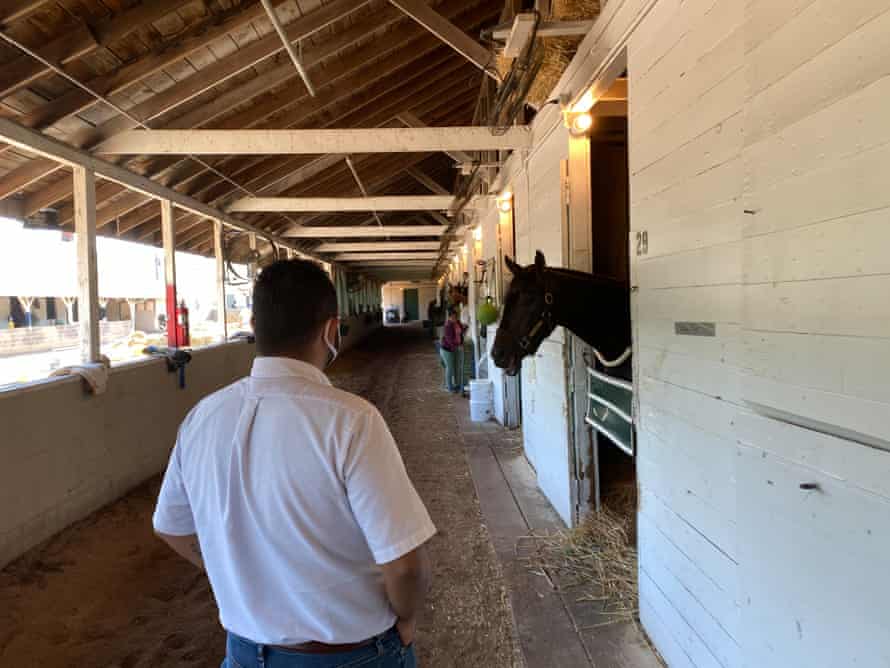
The premier race of the Sport of Kings is a conspicuous display of wealth and overindulgence. Celebrities recently disembarked from private jets pose for photos on the red carpet, and horses owned by Middle Eastern royalty thunder around the dirt track. This year, a horse owned by Dubai’s ruler, Sheikh Mohammed bin Rashid al-Maktoum, is the favorite to win, though concerns over the high-profile disappearance of the sheikh’s daughter have prompted calls for the horse to be barred.
Partiers sip $1,000 mint juleps and sit in suites that start at well over $100,000. There’s an exclusive section of Churchill Downs called Millionaires Row, but even that is not the ritziest place to watch the fastest two minutes in sports. While tickets in the track’s infield are much more affordable, few have a view of the actual horses.
“So the Backside of Churchill, most people don’t really think about it,” says Del Rosario, the chaplain. “They think of all the glamorous things happening on the front side and the track.”
In the workers of the Backside, Del Rosario sees reflections of his father, who at 18 traveled from Peru to Mexico and ultimately crossed into the United States as an undocumented immigrant to create a better life for his family.
“That’s what he was doing in New York, once he got a job, sending money back home to his family and eventually having his own family and providing for us,” he said. “That’s what a lot of them [at the track] is doing … We’re pretty blessed over here. It’s pretty hard across the border.”
Beyond tending to the spiritual needs of the workers, Del Rosario tries to help however he can: helping people set up doctor appointments, helping them with immigration paperwork, helping them figure out how to get around on public transportation, and providing a friendly face who speaks their language.
At the Christ chapel on the Backside of Churchill Downs, there is a food pantry as well as a room of free clothes for workers.
Some workers take clothing items to send to their families overseas. Others arrive at Churchill Downs fresh off the street after being homeless with no money and need a “hand up” (as Del Rosario calls it) until their first paycheck comes in.
“They can make something of themselves here because nobody cares about your past as long as you’re willing to work,” he said.
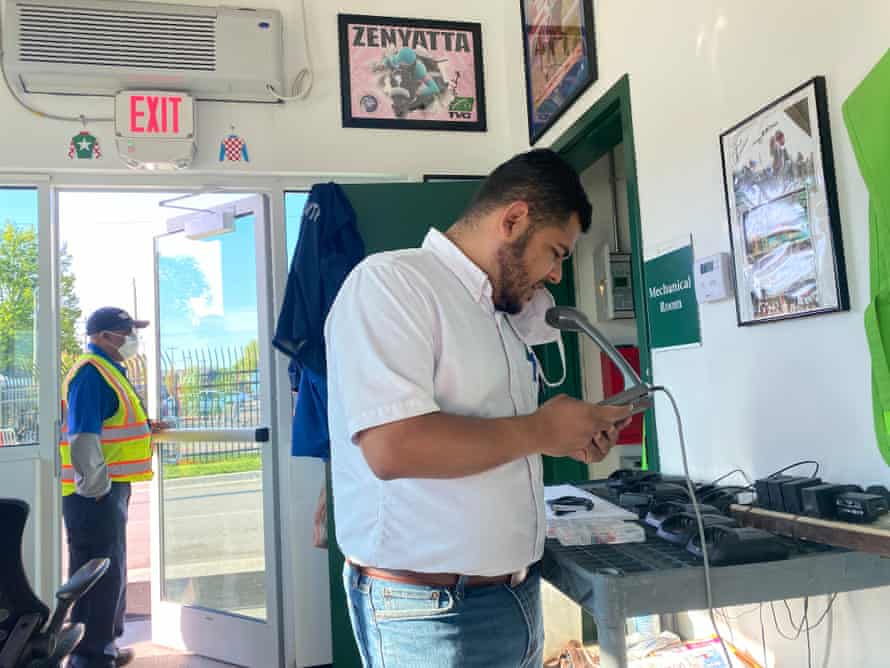
While the Kentucky Derby has a total purse of $3m up for grabs, the compensation for those who take care of the horses can be below.
“The money isn’t as good as you would think,” said one longtime non-Latino Backside worker who spoke to the Guardian at length but would only give his name as Mike. “Racehorses make a lot of money – well that’s fine and dandy for the owners and trainers, but the help gets a lot less.”
“If you’re making $300 a week after taxes you’re not doing bad at all being a hot walker,” he added, referring to the workers who walk horses after a workout to allow the animal to cool down.
However, workers and those familiar with the Backside world say pay differs depending on the trainer employing the stable workers and what kind of work is being done.
Exercise rider Ramiro Vargas, 42, started coming to Churchill Downs more than a decade ago. He met his wife, a Backside hot walker while working here five years ago and Del Rosario married the couple last September.
“This job is good, but dangerous sometimes,” says Vargas, who recently returned to work from surgery after his arm was injured when he tumbled from a horse in Chicago. Lifting his hat, he shows the place where a horse kicked him in Mexico when he was younger.
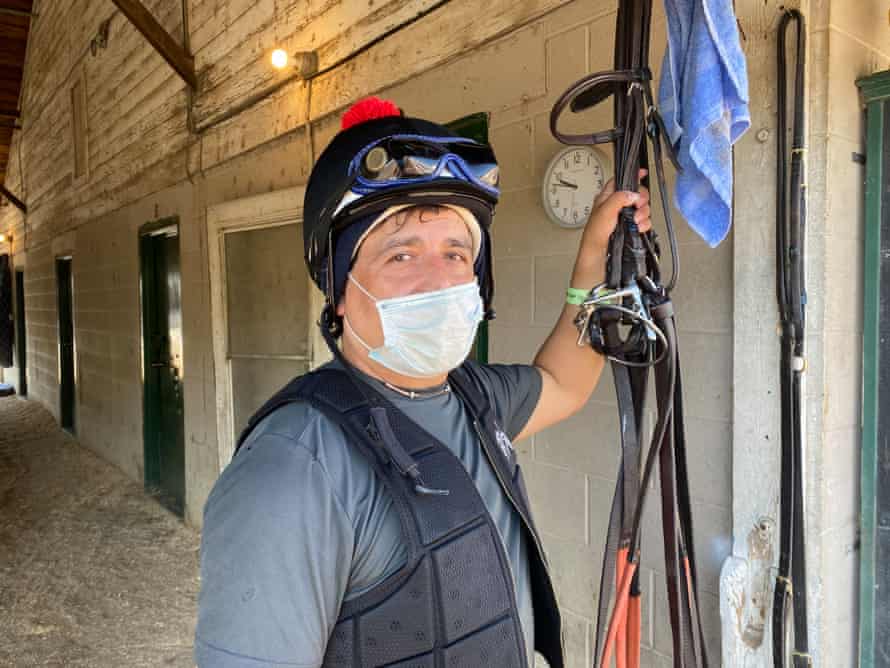
The non-profit Backside Learning Center offers English classes to workers – but like Del Rosario – also provides whatever community services it can, from helping immigrants navigate life in America to a program that provides bicycles and teaches bike maintenance. The center even acts as an unofficial post office to distribute mail to Backside workers and puts on social activities like movie nights.
Outside Churchill Downs’s gates, the Backside Learning Center operates a second location that serves the educational needs of the children of stable workers.
Sherry Stanley, the director of the center, says it is unique in the horse racing world and when workers move to tracks elsewhere in the country oftentimes “there’s really no kind of support system.”
“Before the Learning Center was here, life was different for the people in the Backside because they were so bored. There was nothing to do after work,” said Roberto Gonzalez, 61, who has worked Churchill Downs’s Backside for nearly three decades now.
Gonzalez, who was born in Mexico and came to the United States in the 1980s, spoke English before the center first opened in 2004, but he said its opening allowed him to practice and improve his skills.
Uncollected winnings from horserace bets also assist workers through to the Kentucky Racing Health and Welfare Fund, which pays for non-work-related medical costs for Backside workers at Churchill Downs and other Kentucky tracks who demonstrate financial need. Last year the fund says it paid out more than $1.2m in health benefits.
To Del Rosario, the Backside is a community just like any town or city.
“This is its own little city. There’s a little bit of everything. The good, the bad, and the ugly,” he says. “There’s a crime of all sorts and kind, there’s the charity of all sorts and kind. There’s the economics of all sorts and kind.”
In pre-pandemic times, Derby Day was a time for the Backside to let its hair down, with the stretch of stables turning into a party of its own. Rules were relaxed and workers’ families were allowed inside to barbecue.
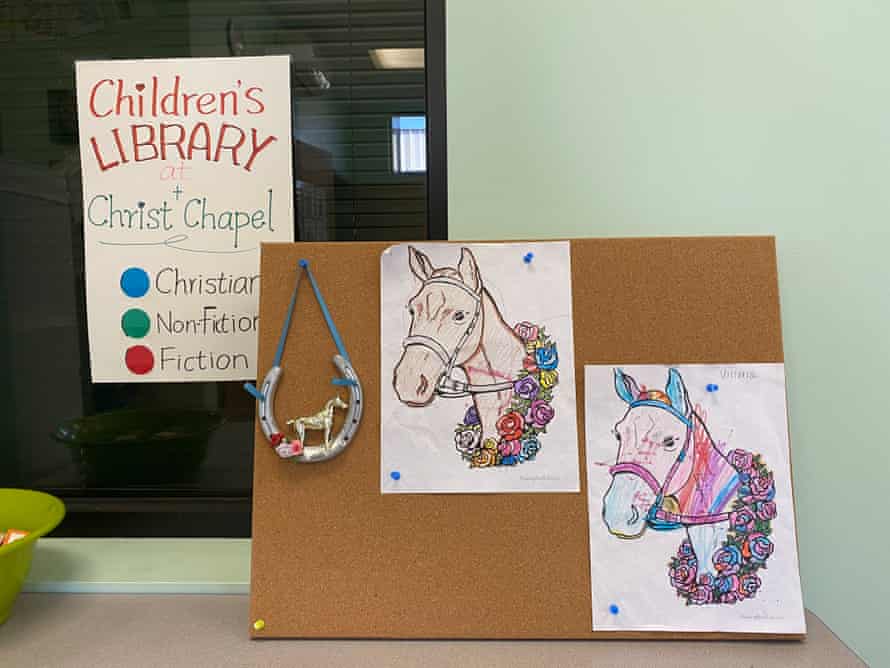
Last year, however, the race – which is traditionally held on the first Saturday in May – was delayed until September by the pandemic and run without fans in attendance. In the lead-up to the Derby, racial justice protesters marched on Churchill Downs chanting “No justice, no Derby!” and “Fuck your Derby!” as they sought reforms and charges against the police officers involved in the death of Breonna Taylor, the Black ER tech who was killed by Louisville police in her apartment in March 2020. On Derby day, the horses ran in a mostly empty track that was ringed with barricades guarded by national guard troops and police as protests continued.
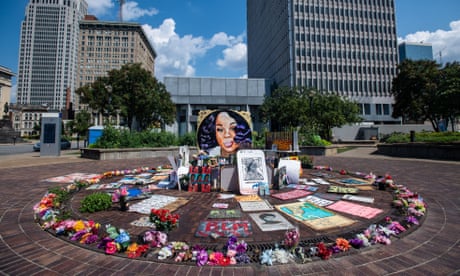
This year, Churchill Downs is allowing fans into the track once again but has limited its capacity.
For workers who have returned to the track time and time again despite the hardships, there is a love of horses and the environment of the track.
Gonzalez, who has worked several stable jobs but currently watches and takes care of horses in the stables overnight, said he was initially scared of the animals when he started working with them decades ago but has grown to love them. Being able to work out in the fresh air is what keeps him coming back.
“Here you feel the sun, you feel the wind, the rain,” he said. “In the factory or the office, you feel more stressed. Here you feel more freedom.”
… we have a small favour to ask. Millions are turning to the Guardian for open, independent, quality news every day, and readers in 180 countries around the world now support us financially.
We believe everyone deserves access to information that’s grounded in science and truth, and analysis rooted in authority and integrity. That’s why we made a different choice: to keep our reporting open for all readers, regardless of where they live or what they can afford to pay. This means more people can be better informed, united, and inspired to take meaningful action.
In these perilous times, a truth-seeking global news organisation like the Guardian is essential. We have no shareholders or billionaire owners, meaning our journalism is free from commercial and political influence – this makes us different. When it’s never been more important, our independence allows us to fearlessly investigate, challenge and expose those in power.




Leave a Reply